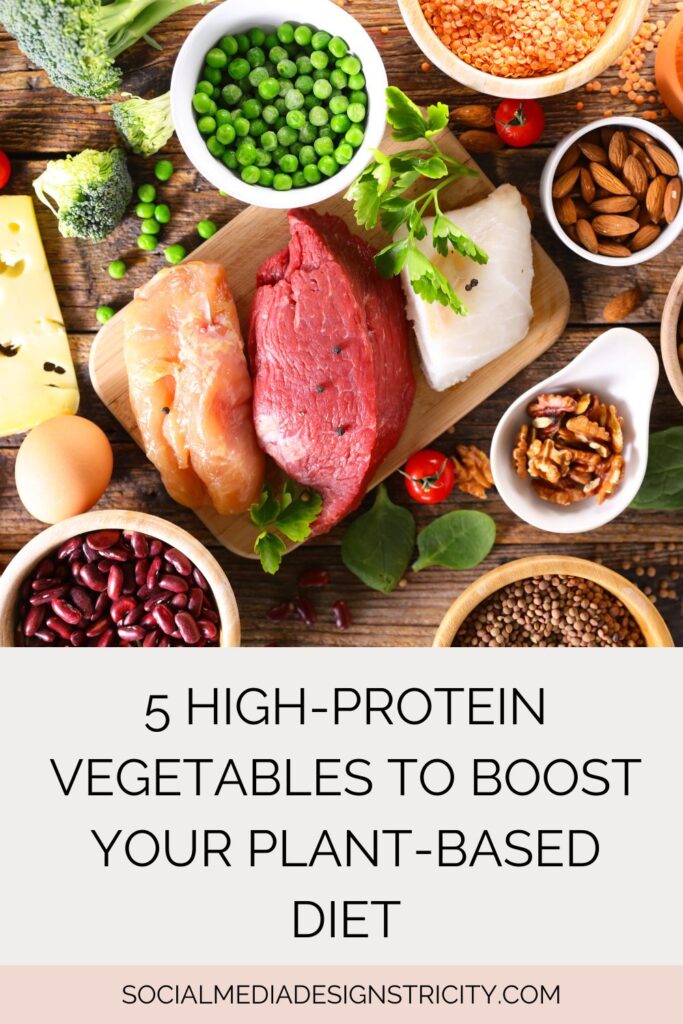Discover 5 high-protein vegetables that can boost your plant-based diet and help you meet your nutritional needs. Raw vegetables like nuts, seeds, beans, and legumes can help you get proper nutrition without breaking the steak. The trick is to properly combine them to make a complete protein source. Even with a strictly plant-based diet, it is still very easy to consume the recommended levels of protein. At times, plant-based protein even exceeds animal-based protein in terms of benefits. Studies reveal that a well-planned plant-based diet is rife with health benefits that help reach the goals. With a plant-based diet, it may be difficult to get adequate protein on a regular basis. Here’s how to boost protein intake while on a plant-based diet: consider doing the following tips:
1. Brussels Sprouts
Brussels sprouts are often underestimated vegetables, but they are an excellent plant protein source as well. One cup of Brussels sprouts, cooked, has around 3 grams of protein. These small leafy greens are also rich in Vitamin C, Vitamin K, and antioxidants as well as fiber. Adding olive oil, garlic, and other spices and roasting or pan frying Brussels sprouts would make the vegetable taste sweeter and perfect as a side for most meals.
2. Spinach
Spinach has gained quite an honor for its iron-rich nutrients, however, what is worth to mention is also its protein levels. A cup of cooked spinach offers 5 grams of protein on average. Besides, spinach gives a whole range of essential antioxidants, vitamins A and K, as well as folate. This greens vegetable can be blended and integrated in various ways such as stews, as a side to pastas, and in smoothies and sauces.
3. Broccoli
Another high protein diet vegetable is broccoli that contains around 4 grams of protein in every cooked cup. Be sure not to overlook its high content of calcium, vitamin C, and dietary fiber, so it fits into a well-balanced plant-based diet. The fibrous characteristic of broccoli gives this vegetable a crunchy feel and is a perfect ingredient to add into casseroles, stir-fry’s or simply as a side vegetable. To improve its protein utilization, combine with either olive oil or mashed avocado.
4. Peas
Green peas are a protein-dense vegetable that has around 9 grams of protein per cup. They are also a great source of fiber, vitamins A, C, and K. Their flavor is quite delicate and sweet, so they go with just about anything – soups, salads, grain bowls and so forth. Peas which are light and fresh in flavor, are also a great easy addition to boost protein intake in different meals.
5. Lentils
Dried lentils are technically legumes, but they are usually included in vegetable recipes due to their nutrition value. A plant-based diet may benefit from one cup of boiled lentil whose protein content is estimated to be 18 grams associated with high amounts of fiber, iron and folate. Due to their great protein levels, lentils are excellent for making classic soups, stews, salad, veggie burgers, and many more. They are also excellent as a supplemental protein source for a fully plant-based diet.
Conclusion
Using these types of vegetables in your meals continues to meet all of your protein requirements without losing taste or variety in the meal. If you follow a strict diet as a plant based eater or just wish to include more and more vegetables in your routine diet then these choices are perfect to help you achieve your required level of protein with other nutrients too. It is high time to start incorporating these vegetables to your diet for a healthy and balanced life.


